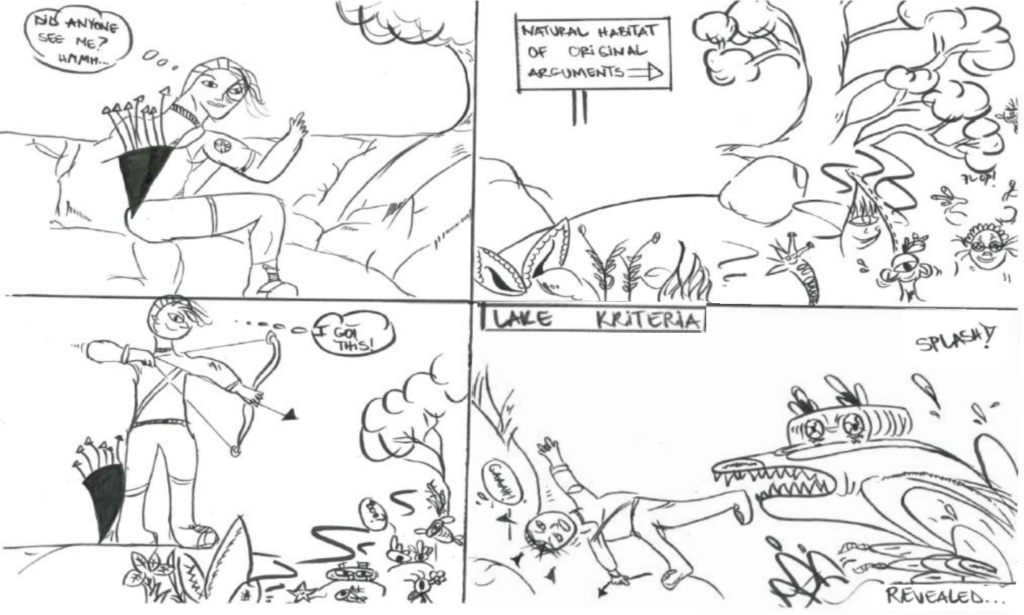Written by Ella Green of Sussex International Development.
*The views in the following article are the personal views of the author and are not an official position of the School.*
Communal consumption cultivates connection
Eating always has, and always will be, a human ritual. It is essential to our humanity: it is what makes us human. From pan to plate, the product of the cooking experience is greater than the food upon which we feast. Sharing food fills not only the stomach but the heart.
Throughout history, eating together is well documented. In fact, the word companion has its roots in the Latin phrase com panio, meaning with bread. So, believe it or not, a friend or companion is actually just someone with whom you share your bread. Sharing a meal has an immense social power. The benefits go beyond the biological. Through sitting down and eating with someone, the divisions of difference can be somewhat dismantled.
In the words of ‘life chef’ Leon Aarts: ‘Sharing a meal has power to connect you with people from other countries, other cultures, the other side of your street, or even your family.’ But can the commonplace rituals of cooking and consuming combat the effects of the hostile immigration environment?
The Home Office has made the UK hostile
‘When you’re an asylum seeker, you can’t work and your social life is almost nothing. You feel like you’re useless’ – Noor
Life as a migrant in the UK is tough. Barriers exist at every stage of integration and migrants are deprived of human rights. One of the most harmful hurdles is the ban on working. Refugees seeking asylum are not entitled to work in the UK. This leaves many people in precarious situations, where they live in poverty. The government gives asylum seekers just £5.39 a day to live on. Covering the costs of living in a city like London is almost impossible.


Alarmingly, 71% of the British public believe that asylum seekers should have the right to work. From this we can conclude that the government is not reflecting the opinions of the people. Instead, they are creating a culture of exclusion. And even when people’s asylum claims or migration status are accepted, the struggle continues. Many migrants find that their qualifications don’t count or they’re English language skills aren’t high enough.
People also find themselves living under a volatile immigration status. The threat of detention or a change to their visa is always on the horizon. Paulette, from Jamaica, worked for 5 years as a teacher in South London. One day, the Home Office made changes to her visa requirements and she was informed that she must have extra qualifications in order to extend her visa. After this, Paulette and her young daughter lost their home and source of income and became susceptible to deportation.
Many living under hostile immigration policies, feel devalued. Arriving with burning ambition, experience and skill, these are left to dwindle. Most migrants desire purpose but are met with prejudice. Additionally, Post-Brexit plans will make it even harder to migrate to the UK, and many migrants will be classified as unskilled.

And it’s not only migrants who feel the burn of the Tory government’s hostility. Marginalisation is rife amongst native English nationals. The strains of austerity mean society is characterised by inequality. For many, life consists of poverty, social isolation and poor mental health.
So, where the void between people is seemingly growing, is food the answer to our problems?
Sharing a meal can satisfy our appetite for connection, direction and solidarity
According to Leon Aarts , ‘We had more in common than our differences.’ When Leon, sat down to share a meal with refugees in the Calais ‘Jungle’, he realised that through the simple act of eating communally, social divisions can be crushed. From there, he bought back to the UK the concept of Superclub Compassion.
Likewise, in response to the hostile environment, a multitude of grassroots, social enterprises are flourishing in the UK and beyond. Migrateful, Superclub Compassion, Supper & Stories, JUMA Kitchen, The Jollof Café and Al Shalmi Kitchen all put connectivity through food at the heart of their operation.
These organisations have created collective spaces which are fuelled by conviviality, hospitality and care. They focus on our commonalities not our contrasts. This is demonstrated in the fact that, despite their notorious brutality, the refugee and volunteer-led kitchens in Calais have even been known to feed the police. Therefore, the impact of together spans far and connects even the most divided. In fact, it has also been proven that sharing a meal improves happiness, health and wellbeing.
A clear case of connecting migrants with people from diverse background is the initiative Migrateful. Migrateful works by paying migrants from as far as Syria Eritrea and Sri Lanka to run cooking classes. Although some may have unstable immigration statuses, they offer some of their chefs that do not have the right to work a weekly solidarity grant to support them with their essential needs. Migrateful also invests in training their chefs, so they can deliver high quality lessons to the public. The experience is about mutual learning- the chefs teach people to cook food from their home countries, while at the same time, they develop skills, such as English language. Everyone then sits down to dine together, sharing life stories and laughter.

Other groups work in a similar way. When the government isn’t welcoming or integrating migrants, these initiatives reinstall the sense of self-worth and purpose that people crave.
And these spaces allow for self-expression, healing and storytelling. Stories & Supper, for instance, give migrants a place to share their histories. In a simple mealtime setting, the silencing of migrant voices is resisted. Narratives of refugees and migrants as passive and in need of saving are slowly grated away. Migrants take the lead and their agency is nourished. In these environments, prejudices melt away and the conventional space where you expect to share a meal with friends or family is filled with strangers.
And the impact flows in all directions. Cross cultural exchange is facilitated by the universality of food. Cooking seems to cultivate compassion, connection and cohesion. At its best, food becomes a uniting force, in the midst of a lonely and hostile world.
Sadly, appetites for human connection may only be partially satisfied. The wounds of a society divided by race, gender, sexuality, religion and more, can only be partially healed.
But, at the end of the day, one thing everyone has in common is eating. As Majeda, a Syrian chef at Migrateful, says: ‘I believe there is a relationship between cooking and love.’
Ella Green is a finalist in International Development at the School of Global Studies, University of Sussex.







